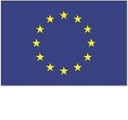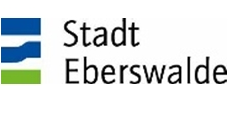FAQs - Frequently Asked Questions on GCM
APPLICATION and REQUIREMENTS:
What are the basic entry requirements?
Proof of university degree (Bachelor or Diploma or comparable degree with at least 6 semesters or a minimum of 120 ECTS credits. It is also possible to apply with an almost completed degree. The degree must be proven by the time of enrolment (at the latest by the start of lectures).
Do I have to have a degree in natural sciences to apply for GCM?
No. The study programme is open for all disciplines.
What are the language requirements?
Very good knowledge of English language (at least CEFR B2 level). Native speakers and applicants from countries with English as their official language do not have to prove their English skills
.If I am a non-native English speaker, how can I obtain a language certificate to enrol in the programme?
We strongly recommend to complete the certification ahead of time. An Intensive English Course, for those who are fluent but are ONLY lacking the official B2 certification, is offered one week before the winter semester starts. If you need to obtain a regular language certificate, a TOEIC-test (to obtain a B2 certificate) and corresponding preparatory course is offered at our language centre during winter semester, but adds to your work load and is not recommended in parallel to your intensively running modules.
Can I improve/refresh my English skills to be better prepared?
Yes, even if you hold a B2 certificate but feel the need to polish up your English skills, you can attend our Intensive English Course, which is offered a week before the start of the winter semester.
What are the application deadlines?
Deadline for applicants from countries of the European Union: 15.7.
Deadline for applicants from non-European Union countries: 1.5.
Can I register for the summer semester?
No. Students can only be enrolled in the winter semester of each year.
How many study places are available?
The admission for this study programme is limited. There are approx. 26 places available each year.
How many applicants are there on average each year?
We receive 150 to 200 applicants each year.
How are applicants selected?
Decisive for a very good place in the ranking is on the one hand the final grade of your previous (undergraduate) degree and on the other hand international experience and work experience, both with a direct relation to the goals of the study programme, and a letter of motivation.
What is the duration of this study programme?
Four semester (= 2 years)
How many credits do I need to get to successfully complete the programme?
120 ECTS credits.
Are language modules offered at the university?
Yes, language modules are offered by the Sprachenzentrum (Language Centre) on campus. Modules offered range from German, Swedish, Spanish and many more at different language levels and are offered only facultative for GCM.
Are there any scholarships available for this study programme?No, not specifically for GCM. Compared to other countries, universities in Germany rarely award scholarships, but organisations such as the DAAD, party- or business-related institutions award scholarships. Information on different types of scholarships and suitable offers can be found in the DAAD scholarship database.
The conditions for funding vary from institution to institution and the application process can often be time-consuming. Sometimes it can still be worth it! Since there is no guarantee that you will receive a scholarship or the maximum amount of a scholarship, you should make sure before your stay in Germany that you have enough money to finance your studies.
See here for an overview of some scholarship programmes in Germany that international students can also apply for.
Link: overview of some scholarship programmes in Germany
Link to Living, financing and funding I Accommodations in Eberswalde
SCHEDULE and CONTENTS:
How are the modules organised?
Modules are organised in a block schedule format. Each module ranges usually from 1 to 6 weeks in length and typically meet Monday – Friday the whole day. If the modules are excursion-based, weekends can also be included. In addition to classes by lecturers and invited experts, the study programme also focuses on participation and discussion, thus, highly motivated students with a disposition to self-study and group assignments are most welcome.
Study language is English.
The study programme includes a project based research semester (in Germany or abroad) and visits to partner organisations. Although the university provides some financial support, students have to pay for the travel and accommodation costs themselves.
What does a typical day look like?
Although the schedule can vary between modules, especially if conducted by partners of the study programme, we typically meet between 9:30 am and 5:30 am with a break for lunch around 1 pm and coffee breaks are adaptively included.
Is it possible to work while studying?
As especially the first two semesters are time intensive, we recommend that students not intend to simultaneously work within the lecture periods. During the lecture periods, the time commitment is similar to a full-time job. If you need to work, semester breaks are more suitable for this purpose.
What topics does this programme focus on?
- Understanding dynamics of socio-ecological systems and their contribution to human well-being under global change
- Gaining knowledge about tools for assessing threats and risks for systems functionality
- Development of skills and insights needed for the identification of leverage points for change
- Application of gained knowledge for developing change management strategies and implementing them
For more information, have a look at the curriculum, the detailed module description and other documents available at the GCM-homepage.










